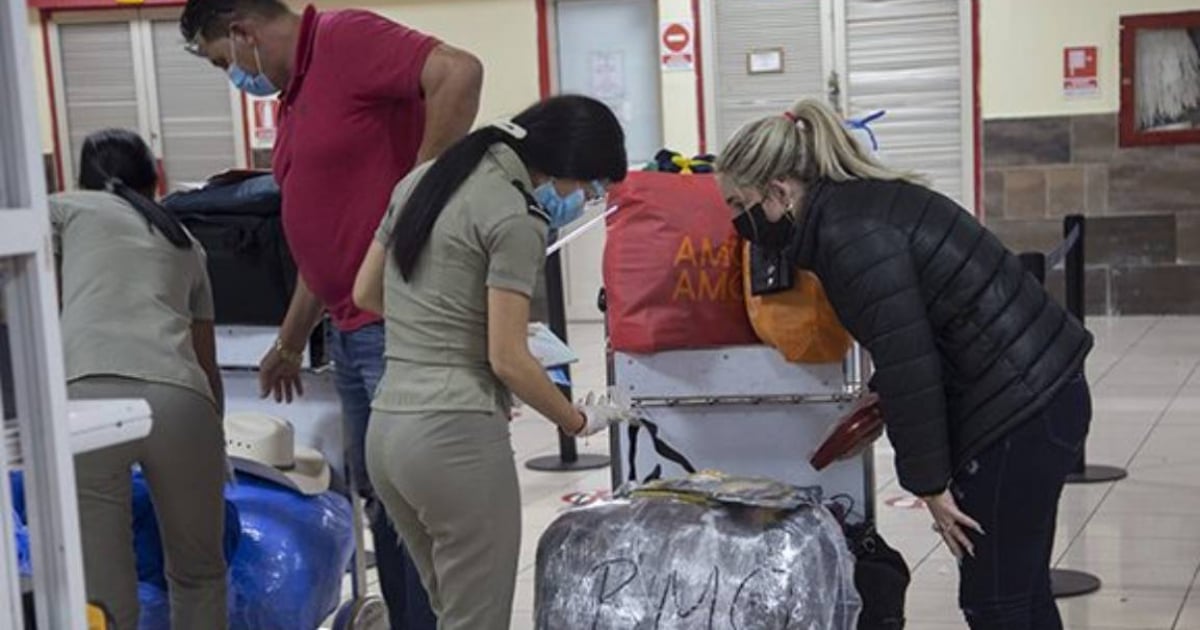
The acute economic crisis in Cuba has forced the government to extend and expand exceptional measures for the importation of essential goods, such as food, medicine, and medical supplies, under a customs exemption regime.
This policy, in effect until January 31, 2025, highlights the seriousness of the situation on the island and emphasizes the deterioration of living conditions for the population.
The Official Gazette of September 28, 2024 highlights the continuation of these relaxations, which had already been temporarily implemented in 2021 following the 11J demonstrations, but which are now extended for a longer period and with greater specificity regarding the products benefited.
In July 2021, amid the COVID-19 pandemic and strong political tension on the island, the government imposed exceptional measures to allow citizens to import food, hygiene products, and medications for non-commercial purposes and exempt from customs duties.
The tariff exemptions in the Official Gazette of 2021 were only extended until December of that year, addressing an urgent need to tackle the shortages generated by the health crisis and the supposed "intensification of the blockade" by the United States.
However, in 2024 the scope of these measures has been expanded and their duration has been extended until January 2025, reflecting a crisis that not only persists but has worsened.
Differences between the Resolutions of 2021 and 2024 for importing in Cuba
The current context in the country is particularly critical. The prolonged economic difficulties, exacerbated by an energy crisis, shortages of basic products, and the collapse of strategic sectors such as agriculture and industrial production, have led the government to adopt more extended and detailed measures regarding customs exemptions.
While in 2021 the flexibilization focused on allowing the importation of food, hygiene products, and medications in general, the resolutions issued in 2024 include a much broader catalog of medical devices and specific health products.
This reflects the seriousness of the health crisis and the urgency to supply the country with essential materials that can no longer be produced internally or easily acquired in the national market.
Among the tax-exempt products in 2024 are medical equipment as diverse as glucometers, pulse oximeters, syringes, portable ventilators, and dental prostheses, highlighting the urgent need for these supplies in a society facing a notable deterioration in its public health system.
The resolutions also allow individuals to send and receive these products by air, sea, or mail, facilitating the flow of supplies from abroad, where the Cuban diaspora has played a key role in supporting families on the island.
Importation of food against the rise of extreme poverty in Cuba
In addition to the exemptions for medical products, in 2024 it also renews the measures that allow the non-commercial importation of food and hygiene items, with no limits on their value or weight when transported as accompanied luggage.
People can bring up to 50 kilograms of these goods without paying customs duties, a considerable increase compared to the 10 kilograms authorized in 2021 for medicines.
The extension of these flexibilizations until January 2025 reveals an implicit acceptance by the government that the country's economic conditions will not improve in the short term.
The comparison between the measures of 2021 and 2024 reflects a clear evolution in the Cuban government's customs policies. While the measures of 2021 were temporary and limited in scope, the current provisions recognize that the crisis has become chronic.
That citizens import what the government does not produce.
The deterioration of living conditions, especially in access to food and medical care, has forced the government to indefinitely extend policies that were once considered emergency measures.
The resolutions of 2024 confirm the seriousness of the economic crisis in Cuba and the government's inability to provide essential goods to the population.
Although these temporary measures aim to mitigate the scarcity, they also highlight the country's increasing dependence on imports and support from the Cuban diaspora.
The extension and expansion of customs exemptions is, in essence, an official acknowledgment of Cuba's economic precariousness and a desperate measure to alleviate the most basic needs of its population in the context of a severe humanitarian crisis.
What do you think?
COMMENTFiled under: